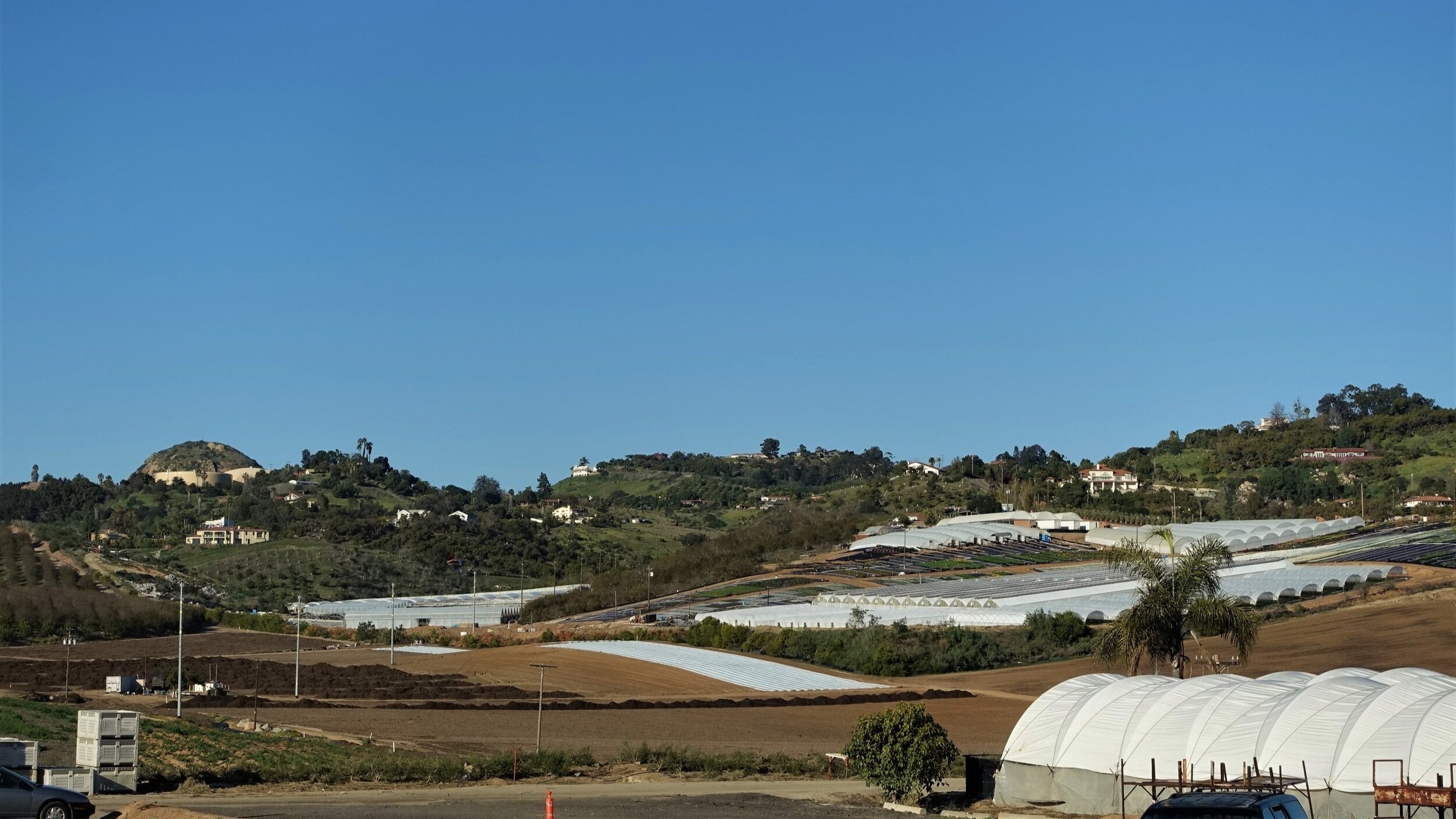
South Morro Hills: A Tapestry of Agriculture and Thoughtful Zoning
Welcome to South Morro Hills, an agricultural treasure nestled in the northeast corner of Oceanside. This 5.4-square-mile (3,440 acres) region is not only a testament to our rich farming heritage but also a reflection of thoughtful zoning practices that encourage and protect our unique way of life.
A Zoned Haven for Agriculture, Agritourism, and Growth
Our community is encased within the City of Oceanside's Comprehensive Zoning Ordinance, specifically designed to safeguard agricultural activities. The zoning here is dedicated to preserving this last remaining agricultural area in the coastal region of San Diego County. It supports our diverse farming ventures known for avocados, tomatoes, strawberries, cut flowers, succulents, coffee, and wholesale nurseries.
The South Morro Hills region is blessed with a microclimate and soil composition unparalleled in the state, and the zoning laws in South Morro Hills are a crucial framework supporting our agricultural pursuits. They ensure:
Protection of Agricultural Land: Restricting non-agricultural development and preserving the rural character.
Encouragement of Agritourism: Allowing for compatible agritourism activities that bring our community's farming heritage closer to visitors.
Balancing Development and Farming: Facilitating low-density residential development that coexists harmoniously with our farming landscape.

Understanding the Agricultural Zoning Ordinance in South Morro Hills, Oceanside
The City of Oceanside's Comprehensive Zoning Ordinance, particularly Article 14 A, is dedicated to the Agricultural District (Inland), reflecting our community's commitment to preserving and enhancing agricultural activities while accommodating compatible uses such as agritourism.
The Zoning Ordinance balances large-scale agricultural needs with agritourism and residential estate homes. It ensures that agricultural practices and agritourism in South Morro Hills align with environmental standards and contribute positively to the community's character and economy.
For more detailed information on specific regulations or permit requirements, residents and business owners are encouraged to consult the full zoning ordinance or contact the City Planner’s office.
City of Oceanside Development Services Department
Planning Division Contact Information: 760-435-4373 or email planningstaff@oceansideca.org (email is preferred).
Summary of Zoning Ordinance Article 14 A
We’ve put together a summary of Article 14 A, but we encourage you to read the zoning ordinance in its entirety.
Key Purposes
Large-Scale Agriculture: Ensure zoning is apt for large-scale agricultural operations, including related open space uses.
Agritourism: Encourage agritourism activities that are incidental and compatible with ongoing agricultural operations.
Residential Development: Allow very low-density residential developments that align with low-intensity agriculture and livestock rearing.
Land Use Regulations
Permitted Uses (P): Includes diverse agricultural activities like crop production, animal husbandry, and beekeeping.
Limited Uses (L): Certain uses have limitations, such as farmworker housing and cultural institutions.
Administrative and Use Permits (A/U): Some activities require specific permits, including animal boarding, wineries, and farm breweries.
Agricultural Activities Permit (AAP): Activities like U-pick operations and farm tours need an AAP.
Development Regulations
Large-Scale Agriculture
Minimum Lot Area: The minimum lot area is set at 2.5 acres, ensuring adequate space for agricultural pursuits.
Setback Requirements: Different setback requirements are prescribed for residential dwellings, agricultural structures, and agritourism facilities.
Height Limits: Principal structures (agricultural buildings, barns, etc.) have a maximum height limit of 36 feet. Agricultural accessory structures (windmills, silos, antennae, etc.) can go up to 45 feet with a special review and permit.
Agricultural Activities Standards
Permit Requirements: Specific agricultural activities require an Agricultural Activity Permit (AAP) for operational approval.
Development Standards: Standards include managing parking spaces, controlling dust and emissions, and adhering to environmental protection laws.
Agritourism Considerations: Agritourism activities must comply with health and safety regulations, including providing necessary permits for food service and restroom facilities.


